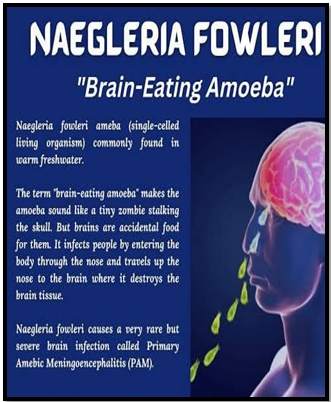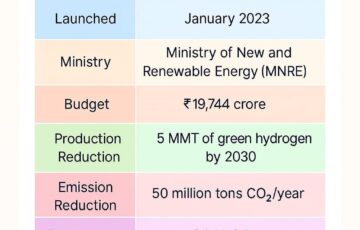“KERALA REPORTS FOURTH BRAIN-EATING AMOEBA CASE, URGES SAFETY MEASURES”
Why in the news?
- Kerala reports fourth case of amoebic meningoencephalitis since May; 14-year-old boy from Payyoli currently receiving treatment.
- Health officials urge avoiding unclean water bodies and ensuring proper chlorination of swimming pools to prevent infection.
source:cdc
About Primary Amoebic Meningoencephalitis (PAM):
- Cause: Naegleria fowleri (brain-eating amoeba).
- Environment: Thrives in warm freshwater lakes, ponds, rivers, and occasionally in poorly maintained swimming pools.
- Infection: Infects the brain and destroys brain tissues.
- Fatality Rate: 97% of patients do not survive.
- Rarity: Infections are rare but highly fatal.
About Naegleria fowleri:
Human Infection Process:
Associated Article: https://universalinstitutions.com/rise-in-meningoencephalitis-cases-in-kerala/ |





